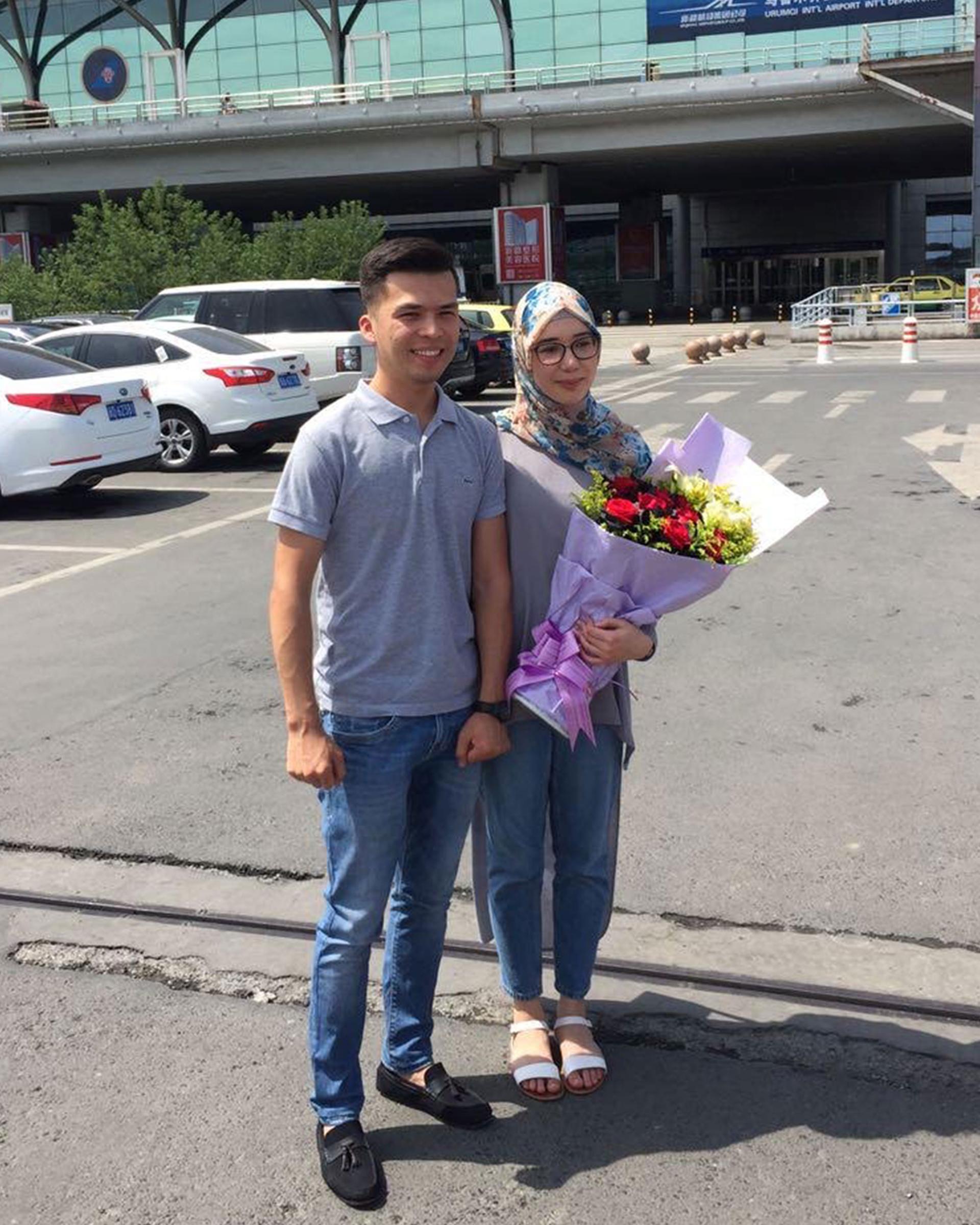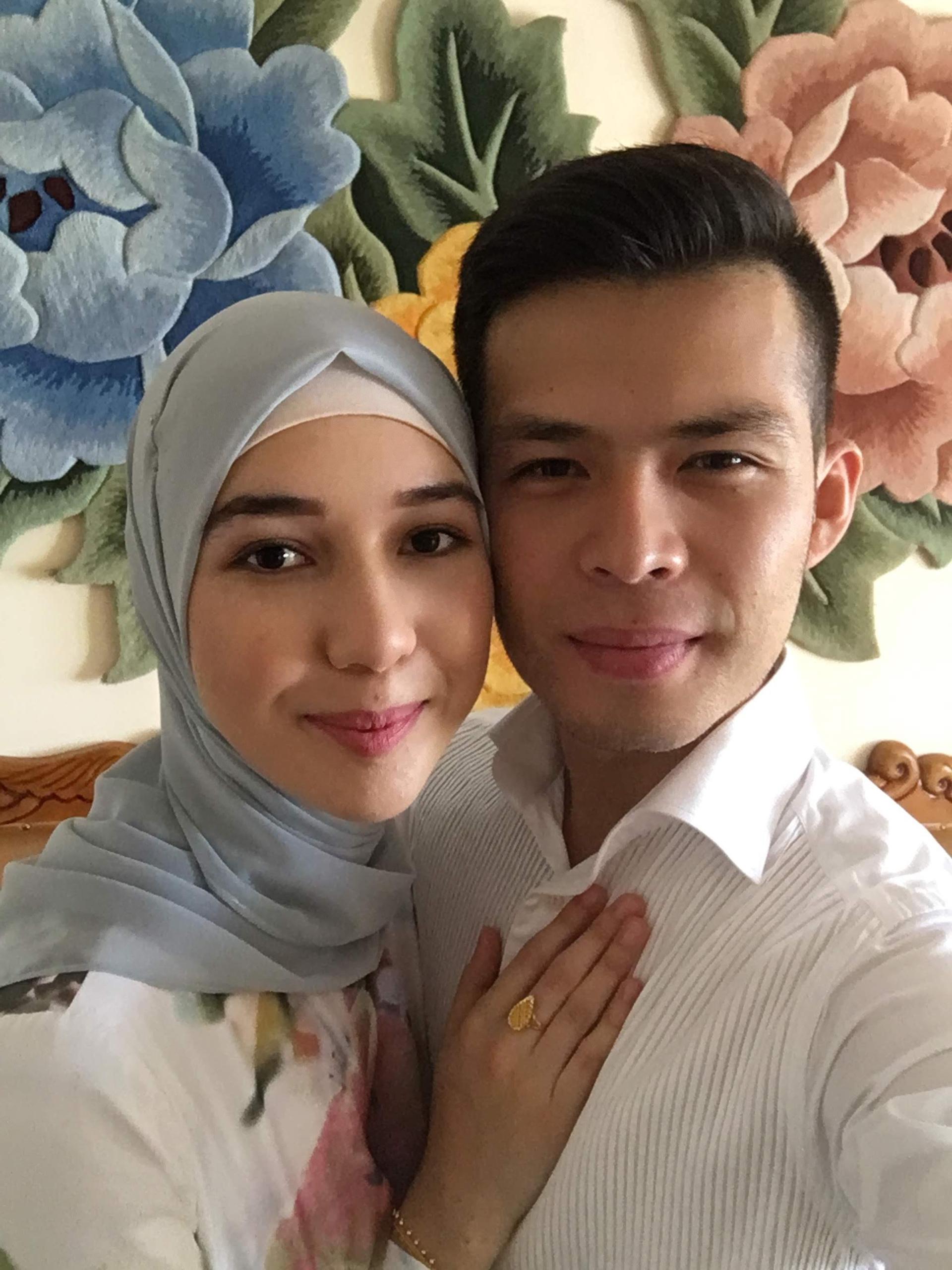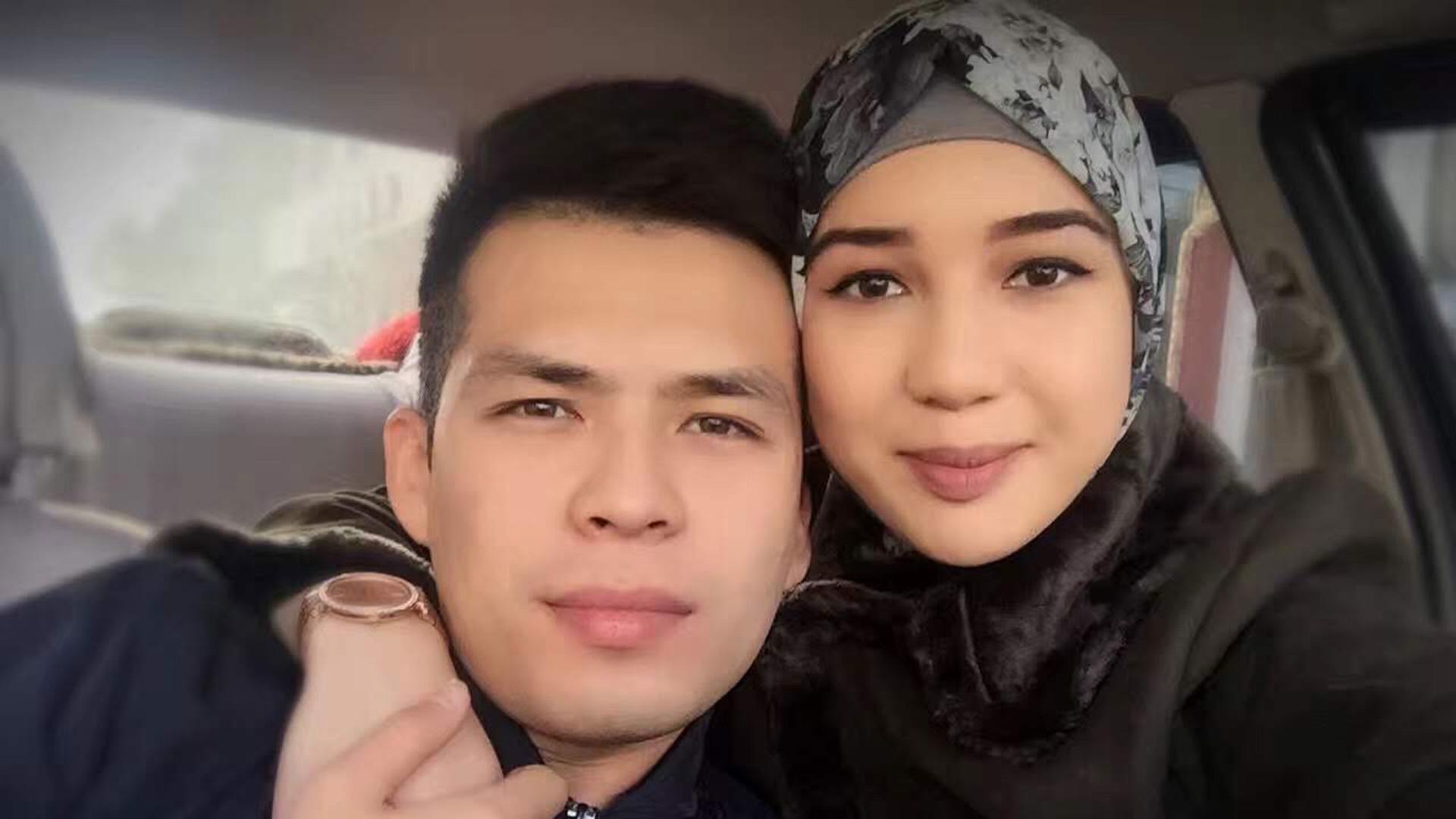This Uyghur woman was separated from her husband by Chinese authorities. She hasn’t given up hope.
Mehray Mezensof, a 27-year-old nurse in Melbourne, Australia, says that she and her husband’s love story started off six years ago like a romantic comedy.
Her mom reconnected with a childhood friend back home in Xinjiang, and, like moms do, they got to talking about their kids.
“The next thing you know, my mom’s introducing me to her best friend’s son,” she said.
Her mom showed her a picture of Mirzat Taher, a tour guide in his hometown of Urumqi, in China’s Xinjiang region, home to many of China’s minority Uyghur population.
As Mezensof described it, it was love at first sight — separated by 7,000 miles.
“You know, it sounds really cliche and cheesy. But just by looking at his face, I felt like this could potentially be the person that I spend the rest of my life with.”
“You know, it sounds really cliche and cheesy, but just by looking at his face, I felt like this could potentially be the person that I spend the rest of my life with,” she said.
But their love story would soon get interrupted when Taher was arrested in 2017, by Chinese authorities in Xinjiang, just days before the couple was scheduled to depart back to Melbourne to build their lives together there.
Related: US bans some solar products from Xinjiang, citing human rights abuses of Uyghur people
Prior to meeting, the couple started talking online and calling each other almost every day. It only took a few months for Taher to pop the question.
Mezensof said she was “110% ready” to spend the rest of her life with him and said yes.

In the summer of 2016, she flew to Xinjiang. Taher was waiting at the Urumqi airport with flowers.
Three days later, they were married.
Her husband applied for a visa, and they planned to return to Australia together to settle down.
The visa came through in April 2017.
“It was two days before we were set to go,” she said. “We had bought our tickets, and we had our bags packed and my husband got a call. We were told that two police officers were coming.”
They had heard whispers that Uyghurs were being taken away by authorities, but this was still new. They didn’t know what to expect when the police showed up.
“They asked their questions,” she said. “‘Do you have a passport? Have you been overseas?’ And, you know, my husband had lived in Turkey for about a year.”
Related: Uyghur mothers in Turkey walk for miles to ask politicians for help locating their children in China
Her husband’s travels to Turkey was enough to raise suspicions of separatist activities.
The officers took Taher to the local police station for more questioning and confiscated his passport.
Mezensof scoffed at the idea that her easygoing husband could be part of an anti-government group.
But Mezensof said authorities sent Taher to a detention camp.
Chinese officials call it “a reeducation school.” She said he was tortured and held there for two years. Then, he was released, she said, but never charged with a crime.
She said authorities told him that he’d completed his “studies” and that he could return to society and have a “normal life.”
But they didn’t return his passport.
Mezensof was able to make a trip to China to see her husband after he was released, but she couldn’t stay for long. She returned to Australia again, and the couple continued their daily video calls.
Then, he disappeared.
“One day he just disappeared. He stopped replying to my texts, stopped picking up my phone calls. And then it was through his family that then I found out that [the police] had taken him in again.”
“One day, he just disappeared,” she said. “He stopped replying to my texts, stopped picking up my phone calls. And then, it was through his family that then I found out that they had taken him in again.”
This time, Taher was detained for three months. He was released, and just a few weeks later, he learned he would be detained again. He managed one last call to his wife in Australia.
“He was so scared,” she said. “It was really traumatic not being by his side, being on the other side of the world and then having to say goodbye to him.”
Related: Amid crackdown in China, Uighur diaspora artists promote their culture
That was a year and a half ago, the last time she talked with Taher. Now, he is facing 25 years in prison on charges of separatism.
“It’s just this constant emotional roller coaster ride where I’m like, some days, I’m like, ‘I can get through this, we can get through this. Everything is going to be OK,’” she said. “And then other days, it’s just [like] I’ve completely hit rock bottom.”

What gets her through it all, she said, is her Muslim faith and the support of others who’ve experienced this kind of anguish. It seems like every Uyghur family has a similar story, she said.
For them, Beijing’s promise of a politics-free Olympics falls flat.
Related: A Uyghur poem of ‘unimaginable suffering’ travels from Chinese internment camp to New Jersey
“It’s really hard to see that the Olympics are still going on,” she said. “It just kind of feels like a punch to the gut.”
But Mezensof said she’s going to keep speaking out about what happened to her husband in the hopes that he and so many other Uyghurs will be reunited with their families.
The story you just read is accessible and free to all because thousands of listeners and readers contribute to our nonprofit newsroom. We go deep to bring you the human-centered international reporting that you know you can trust. To do this work and to do it well, we rely on the support of our listeners. If you appreciated our coverage this year, if there was a story that made you pause or a song that moved you, would you consider making a gift to sustain our work through 2024 and beyond?
